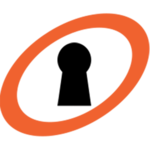Description

Medesk

Meditab
Comprehensive Overview: Medesk vs Meditab
Medesk and Meditab are both healthcare software solutions designed to streamline operations in medical practices. Here's a comprehensive overview of their primary functions, target markets, market share, user base, and key differentiating factors:
Medesk
a) Primary Functions and Target Markets
-
Primary Functions:
- Practice Management: Medesk offers tools for scheduling, patient management, invoicing, and reporting.
- Electronic Health Records (EHR): Provides digital records of patient information.
- Telemedicine: Enables remote consultations with integrated video conferencing.
- Analytics and Reporting: Data-driven insights to help practices optimize their operations.
- Patient Engagement: Automates appointment reminders and offers a patient portal for self-service.
-
Target Markets:
- Small to medium-sized healthcare practices.
- Specialized clinics such as therapists, dermatologists, and dentists.
b) Market Share and User Base
- Medesk primarily targets the UK and European markets. It has a niche presence given its focus on small to medium practices and specialized fields.
- Market share specifics are less publicized, but as a smaller player, it garners a dedicated user base within its chosen niches.
c) Key Differentiating Factors
- Niche Focus: Tailored features for specific specialties.
- User-Friendly Interface: Simplified, intuitive design aimed at reducing administrative workload.
- Cost-Effective: Competitive pricing for small to medium enterprises (SMEs).
Meditab
a) Primary Functions and Target Markets
-
Primary Functions:
- Electronic Health Records (EHR): Comprehensive record management with customizable templates.
- Practice Management: Inclusive of scheduling, billing, and claims management.
- Pharmacy Management: Tailored features for managing prescriptions and inventory.
- Telemedicine: Facilitates remote healthcare services and virtual visits.
- Revenue Cycle Management: Helps practices manage billing processes effectively.
-
Target Markets:
- Aimed at a broad range of healthcare practices including large hospitals, specialty clinics, and pharmacies.
- Used widely in the United States and other international markets.
b) Market Share and User Base
- Meditab is more established, especially in the United States, contributing to a larger market share than Medesk.
- It has a substantial user base that includes larger practices due to its extensive functionality and scalability.
c) Key Differentiating Factors
- Extensive Feature Set: Offers a broader range of features compared to Medesk, suitable for larger practices.
- Scalability: Can be customized and scaled to fit the needs of large practices and even hospital systems.
- Integration Capabilities: Strong ability to integrate with various third-party applications and services, offering seamless operation.
Comparison Summary
- Market Reach: Medesk has a stronger presence in Europe, particularly for specialized small to medium clinics, whereas Meditab is more prominent in the U.S. healthcare market.
- Functionality: Meditab provides a more extensive set of features suitable for a wide range of healthcare settings, while Medesk's functions are highly targeted and user-friendly for specific specialties.
- Scalability and Integration: Meditab edges out when it comes to serving larger practices with complex needs and integration requirements, while Medesk appeals to smaller practices looking for simplicity and affordability.
Contact Info

Year founded :
2008
+44 20 8089 1265
Not Available
United Kingdom
http://www.linkedin.com/company/medesk

Year founded :
2020
Not Available
Not Available
Nigeria
Not Available
Feature Similarity Breakdown: Medesk, Meditab
To compare the features and interfaces of Medesk and Meditab, we can explore their capabilities and visual design to understand their similarities, differences, and unique aspects:
a) Core Features in Common
Both Medesk and Meditab offer a range of standard features typical in practice management and Electronic Health Record (EHR) systems. These common features include:
-
Electronic Health Records (EHR): Both platforms support the creation, management, and storage of comprehensive patient electronic health records, allowing healthcare providers to access patient information conveniently.
-
Appointment Scheduling: They offer tools for booking, rescheduling, and managing patient appointments efficiently.
-
Billing and Invoicing: Automatic invoicing, billing management, and integration with payment gateways are features supported by both systems.
-
Patient Management: Capabilities to manage patient demographics, history, and interactions within the healthcare system.
-
Reporting and Analytics: Data analytics and reporting tools to aid in the performance analysis and enhance decision-making.
-
Communication Tools: Internal messaging and email capabilities to facilitate communication between healthcare staff and patients.
-
Integration with Third-Party Apps: Both offer integrations with other software solutions and devices, facilitating a more comprehensive management system.
b) User Interface Comparison
While I cannot offer precise, up-to-date visual insights into their UIs, generally, the user interfaces of both Medesk and Meditab follow modern design principles common in healthcare software, with an emphasis on usability and accessibility.
-
Medesk: Typically features a clean, structured interface focusing on ease of navigation. It aims to minimize clutter to reduce user fatigue, which benefits day-to-day operations with its straightforward approach.
-
Meditab: Offers a more customizable interface that might appeal to institutions requiring tailor-fit solutions. It is robust, which can be beneficial for users needing more complex functionalities but may have a steeper learning curve.
Overall, both UIs prioritize user-friendliness but might differ in terms of customization depth and particular user workflows.
c) Unique Features
Medesk:
-
Telemedicine Features: More developed telehealth functionalities, allowing direct virtual consultations with patients.
-
Focus on Small to Medium Practices: Design and features specifically tailored towards smaller clinics or individual practitioners needing streamlined processes.
Meditab:
-
Extensive Customization: Known for deep customization capabilities, allowing larger institutions to customize workflows, roles, and interface layouts significantly.
-
Allergy and Pharmacy Management: Specialized management modules particularly useful for practices with specific needs related to allergen immunotherapy or integrated pharmacy operations.
-
Multi-Speciality Support: More robust support for multi-specialty clinics, providing tools needed to accommodate complex requirements across various departments.
In summary, while both Medesk and Meditab offer a comprehensive suite of tools for healthcare management, they cater to different niches and scales within the healthcare industry, providing unique features that align more closely with their target customer base.
Features

Reporting & Analytics
Billing & Payments
User-Friendly Interface
Communication Tools
Patient Management

Electronic Health Records (EHR)
Patient Engagement
Telehealth
Specialty Modules
Practice Management
Best Fit Use Cases: Medesk, Meditab
Medesk and Meditab are both healthcare management software solutions, but they cater to different needs and types of businesses. Here’s a breakdown of their best fit use cases:
a) Medesk
Best Fit Use Cases for Medesk:
-
Small to Medium-Sized Clinics:
- Medesk is particularly well-suited for small to medium-sized healthcare practices. Its features are designed to support the needs of independent clinics, private practices, and specialty clinics.
-
Outpatient Care:
- The platform is optimized for outpatient services, managing appointments, medical records, billing, and patient communications efficiently.
-
Telemedicine Services:
- Medesk includes robust telehealth capabilities, making it ideal for clinics offering or transitioning to remote consultation services.
-
Specialist Practices:
- Practices such as mental health, dermatology, physiotherapy, and other single-specialty clinics can benefit from its tailored features for specialized patient care management.
b) Meditab
Preferred Use Cases for Meditab:
-
Large Medical Groups and Healthcare Systems:
- Meditab is a comprehensive system designed to handle the complexities and scale of larger healthcare organizations, such as multi-specialty practices and hospital networks.
-
Integrated Healthcare Facilities:
- For facilities requiring integration across various departments and specialties, Meditab offers extensive EHR solutions that promote seamless data sharing and collaboration.
-
Pharmacy Management:
- Meditab provides robust tools for pharmacy management, including inventory control, prescription handling, and regulatory compliance, making it ideal for practices with an in-house pharmacy.
-
Behavioral Health Services:
- The software includes specific modules designed for behavioral health, supporting detailed documentation, scheduling, and regulatory compliance essential for mental health services.
d) Catering to Industry Verticals and Company Sizes
Medesk:
- Industry Verticals:
- Primary care, outpatient specialty practices, mental health clinics, and any healthcare provider focused on direct patient interactions and consultations.
- Company Sizes:
- Primarily small to medium-sized clinics and practices that require cost-effective solutions with easy implementation and minimal IT infrastructure.
Meditab:
- Industry Verticals:
- Multi-specialty practices, integrated health systems, hospitals, pharmacies, and behavioral health facilities needing comprehensive EHR capabilities.
- Company Sizes:
- Suitable for larger healthcare entities and those that require extensive customization, scalability, and support for complex workflows and a high volume of patient data.
Both Medesk and Meditab offer industry-specific features but differ in their scale, customization options, and overall target market, allowing various healthcare providers to choose based on their unique operational needs and financial capacity.
Pricing

Pricing Not Available

Pricing Not Available
Metrics History
Metrics History
Comparing teamSize across companies
Conclusion & Final Verdict: Medesk vs Meditab
To provide a conclusion and final verdict for Medesk and Meditab, we'll analyze key aspects such as features, pricing, ease of use, customer support, and scalability.
a) Best Overall Value
Best Overall Value: Medesk
Despite both Medesk and Meditab offering robust solutions, Medesk generally provides better overall value, especially for small to medium-sized practices. Medesk stands out with its user-friendly interface, transparent pricing, and tailored features for practice management, making it an excellent choice for users prioritizing ease of use and cost-effectiveness.
b) Pros and Cons of Each Product
Medesk
Pros:
- User-Friendly Interface: Medesk is known for its intuitive design, catering to users with varying levels of technical expertise.
- Cost-Effective: Offers transparent and competitive pricing, ideal for small to medium-sized practices.
- Specialized Features: Provides a suite of features tailored for practice management, including patient management, appointment scheduling, and billing.
Cons:
- Limited Customization: While sufficient for many practices, the level of customization might not meet the demands of certain specialized practices.
- Scalability Concerns: Larger practices with complex needs might find Medesk's offerings less comprehensive.
Meditab
Pros:
- Comprehensive Feature Set: Meditab offers advanced functionalities suitable for larger practices, including electronic health records (EHR) and practice management systems (PMS).
- Customization Options: Allows for a higher degree of customization, accommodating diverse practice needs.
- Integrations: Strong capability to integrate with various third-party applications and services, enhancing functionality.
Cons:
- Complexity: The extensive features can make the system more complex and challenging to navigate for smaller practices.
- Pricing: Generally higher cost, which might be prohibitive for smaller practices or those on a limited budget.
c) Recommendations for Users
-
Assess Practice Size and Needs: If you run a small to medium-sized practice or prioritize ease of use and cost-effectiveness, Medesk is likely the better choice. Its simplicity and focused features can help streamline operations without overwhelming staff.
-
Consider Feature Requirements: If your practice requires comprehensive EHR solutions, advanced customization, or you anticipate significant growth, Meditab's robust offerings might be more suitable despite the higher cost.
-
Trial and Demos: It's advisable to utilize free trials or demos offered by both platforms to assess which system aligns best with your workflow and practice needs. Direct experience can provide a clearer picture of how each solution fits into your daily operations.
Ultimately, the decision should be based on your specific practice requirements, budget, and long-term goals. Both Medesk and Meditab offer valuable solutions, but considering the factors above will help guide a more personalized choice.
Add to compare
Add similar companies



